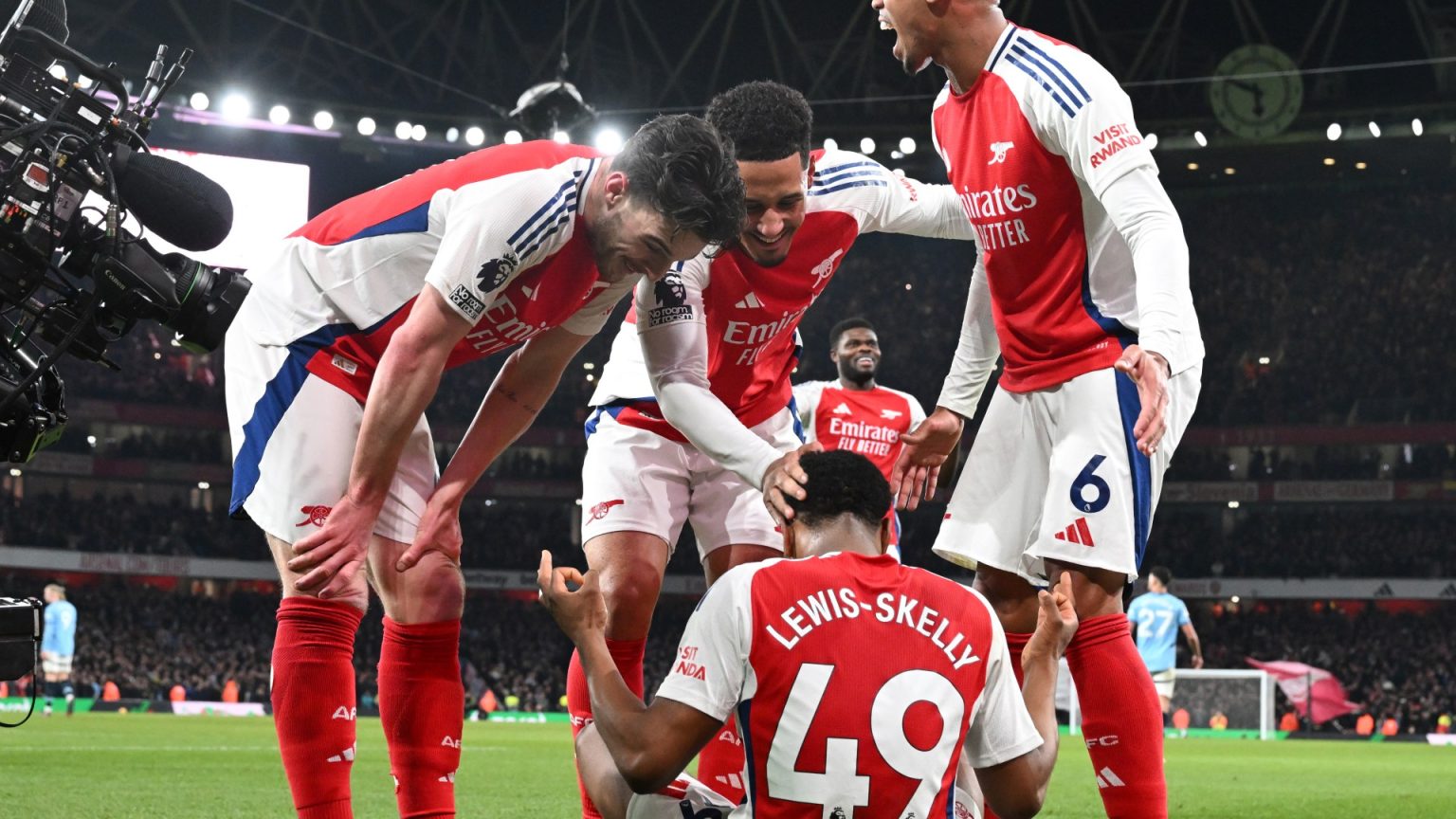The Premier League is contemplating a clampdown on player celebrations deemed provocative or disrespectful towards opponents and their fans. This potential shift in policy comes amid growing debate over the appropriateness of certain celebratory acts and their potential to incite negative reactions. Recent examples include Jamie Vardy’s pointed gesture towards the Premier League badge after scoring against Tottenham, Iliman Ndiaye’s bird celebration against Brighton, and Myles Lewis-Skelly’s meditative pose, seemingly referencing Erling Haaland, after a goal against Manchester City. The Premier League aims to strike a balance between allowing players to express their joy while preventing actions that could escalate tensions or damage the game’s image.
Tony Scholes, the Premier League’s chief football officer, acknowledged the entertainment value of many celebrations, emphasizing the need for a clear line between acceptable exuberance and disrespectful mockery or criticism. While some, such as Ndiaye, have received yellow cards for their celebrations, others, like Vardy in a similar instance against Crystal Palace, have escaped punishment. The Premier League’s renewed focus on this issue suggests increased scrutiny moving forward. Examples like Neal Maupay mimicking James Maddison’s darts celebration, particularly after a social media exchange between the two, highlight the potential for celebrations to become inflammatory. Even seemingly innocuous acts like those of Phil Foden and Joshua Zirkzee, mimicking firing a gun, could fall under the microscope, especially given the hefty fines imposed on NFL players for similar gestures.
Existing IFAB rules already prohibit excessive celebrations, including choreographed displays and those causing excessive time-wasting. Leaving the field to celebrate is not a cautionable offense in itself, but players are expected to return promptly. Specific actions that warrant a caution include climbing perimeter fences, approaching spectators in a way that compromises safety or security, provocative gestures, and removing or covering the head with a shirt. The debate surrounding celebratory actions resurfaced after Lewis-Skelly’s post-goal meditation against Manchester City. While he escaped punishment, the incident sparked discussion about whether such celebrations enhance the game’s entertainment value or unnecessarily introduce conflict. The potential for future repercussions for similar acts underscores the evolving nature of this issue.
A captivating match between Arsenal and Manchester City provided the backdrop for this renewed debate. Arsenal’s stunning 5-1 victory over their recent rivals included a goal by young Myles Lewis-Skelly, followed by his now-controversial meditative celebration. His performance earned high praise, with his composure and tenacity beyond his years highlighted. The celebration itself, perceived by some as mimicking Erling Haaland’s signature pose, divided opinion. While some lauded it for adding a touch of drama and entertainment, others criticized it as potentially disrespectful. This incident served to further fuel the ongoing discussion surrounding player celebrations and their place in the modern game.
The match offered a compelling spectacle beyond the celebration controversy. Arsenal’s dominant performance against the reigning champions was a testament to their tactical prowess and individual brilliance. Standout performances included David Raya’s crucial saves, Thomas Partey’s go-ahead goal, and Martin Odegaard’s opportunistic strike. Lewis-Skelly’s goal and subsequent celebration became a focal point, adding an extra layer of intrigue to the already thrilling encounter. Arsenal’s emphatic victory underscored their title aspirations and signaled a potential shift in the Premier League’s power dynamics.
While the focus remains on potential rule changes and the implications for player celebrations, individual performances and team dynamics continue to shape the narrative of the Premier League. Arsenal’s impressive display against Manchester City, coupled with Lewis-Skelly’s memorable moment, highlights the complex interplay between individual expression, team success, and the evolving rules governing the beautiful game. The ongoing discussion surrounding celebrations promises to be a key theme as the Premier League navigates the balance between entertainment and respect.


